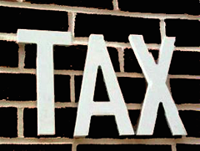 For income tax purpose, any income earned by an individual is classified in to 5 different heads of income and income tax is charged on such income according to the act and rule prescribed. Those five major head of incomes are;
For income tax purpose, any income earned by an individual is classified in to 5 different heads of income and income tax is charged on such income according to the act and rule prescribed. Those five major head of incomes are;
- Salary
- House Property
- Business and Profession
- Capital Gain
- Other Sources
If during the financial year, you have generated any amount as salary income then that income will be charged under the head “Salary” and all provisions related to salary will be applicable to that income.
How Salary Is Defined in Income Tax
Salary under income tax act is defined in a way to include everything that you received from your employer as an employee. It includes followings;
- Basic Salary – it’s the fixed component of your salary which you receive based on your position and as per the terms of the contract you have with your employee.
- Any fee, commission, perquisite etc received or to be received from employee
- Allowances like Dearness allowance, city compensatory allowance, overtime allowance, house rent allowance, entertainment allowance, special allowance and such other allowances are per the terms of contract
- Any retirement benefit like gratuity, pension or annuity received or to be received from your employer
- Advance Salary received
- Arrear of Salary
How Salary is Taxable
It’s taxable either on due or receipt basis which ever is earlier. During your employment your employer will pay you your monthly salary based on the terms of contract you both have signed. Salary as defined under income tax act will attract income tax when at the month end its due for payment. If will be taxable even if you have not received salary from your employer.
Any salary received from your employer in advance will be taxable when it is received. If you have received your April month salary in March then in the month of March that amount will be charged to income tax.
If you have received any arrear of salary due to your retrospective pay increase then such amount will be charged to income tax when it is paid or allowed to you not on the basis of due. For example: if your salary has been increased with effect from last year and due to this increase, the amount received by you during the financial year is Rs. 80, 000 then this amount will be taxable in this financial year as it is allowed or received by you during this financial year.
Exemption from Salary
Certain exemptions are allowed from salary income like house rent allowance, entertainment allowance, children allowance, hostel allowance. Exemptions are allowed only when such exemptions are specifically allowed under income tax act. If certain allowances are not allowed as exemption then the entire amount will be charged to income tax.
Deduction Allowed from Salary
Deductions are allowed based on your investment as specified under different sections from section 80C to 80U.
Specifically from salary only two types of deductions are allowed in addition to the above deductions;
- Entertainment allowance
Such allowance is only allowed as an exemption for state and central government employees.
- Professional tax
Professional tax or employment tax are charged by the state and paid by your employer on your behalf. This is part of your salary and firstly included as a part of salary and then allowed as deduction under section 16 of income tax act.